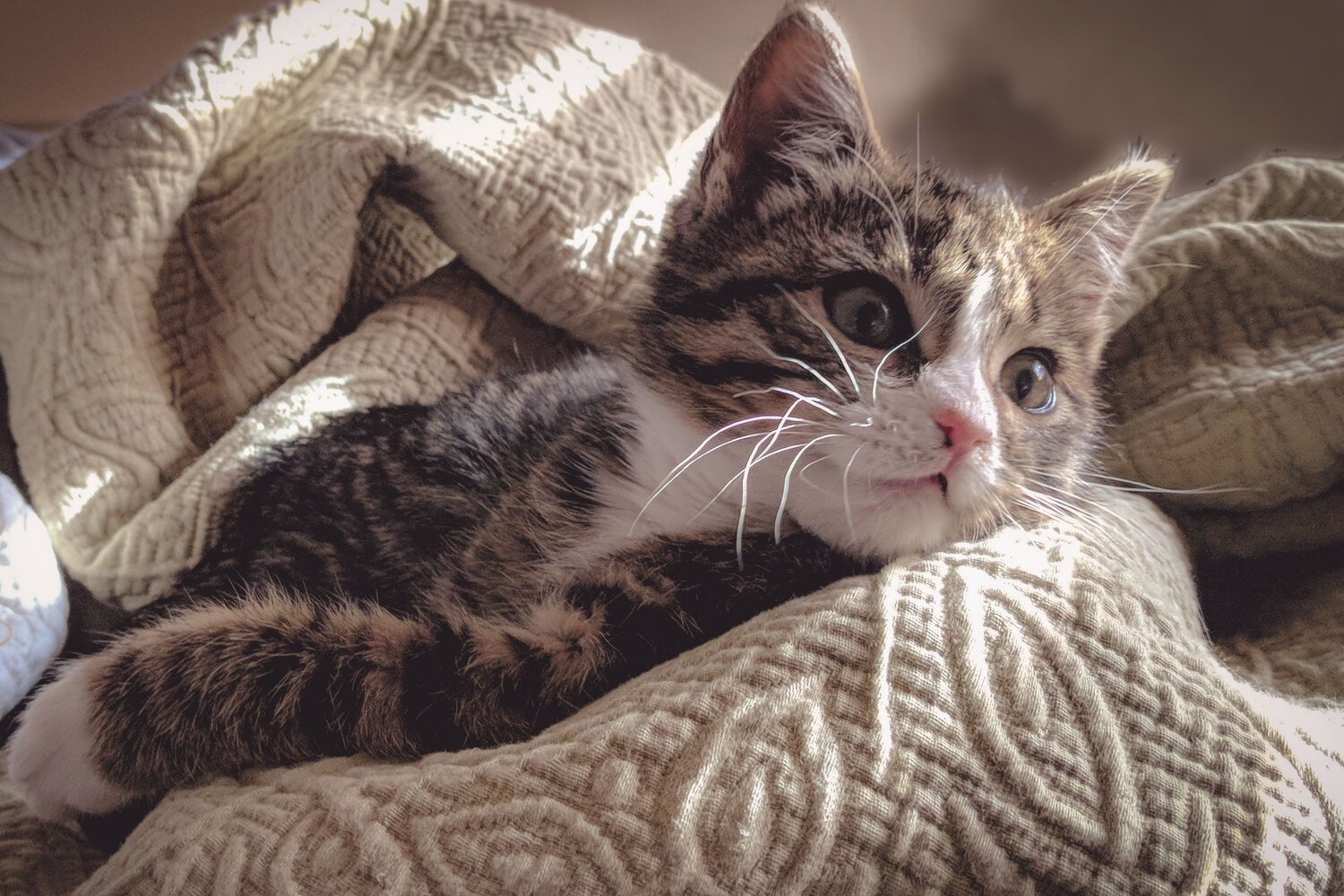
CAT ANESTHESIA
Ensuring Your Cat’s Comfort—What to Expect with Cat Anesthesia

Why would my cat need anesthesia?
Anesthesia for cats is often necessary for various medical procedures, such as surgeries, dental work, or diagnostic imaging, ensuring your cat remains calm and pain-free throughout the process. Sedation also allows our team to keep your cat perfectly still during the surgery for optimal safety.
Are there risks associated with cat anesthesia?
While anesthesia is generally safe, there are inherent risks, and our experienced team takes extensive precautions to minimize them. We conduct thorough pre-anesthetic assessments and continuously monitor your cat during the procedure.
What should I expect the day my cat receives anesthesia?
Before your cat undergoes anesthesia or any surgical procedure, your veterinarian will provide detailed instructions tailored to their specific needs. Discussions about potential risks associated with veterinary anesthesia will be part of this conversation. When arriving for the surgery, please note the following:
Adhere closely to any specific directions provided by your veterinarian.
Depending on the procedure and your cat's condition, additional prescription pain medications may be recommended for their recovery.
Fasting is required the night before any sedation.
Feel free to ask any questions you may have; our veterinary staff is here to provide answers and alleviate any concerns before or after the surgery is performed.
How do I monitor my anesthetized cat?
During the surgical procedure and the entirety of your cat's anesthesia period, our veterinary surgical team employs thorough monitoring. While your cat is under anesthesia, our veterinary staff will:
Maintain an IV catheter to offer fluid support in case of blood pressure fluctuations.
Monitor vital signs, including heart rate, body temperature, blood pressure, oxygen levels, and carbon dioxide output.
Ensure your cat's optimal breathing and overall comfort throughout the anesthesia period.
FAQ
-
The duration varies, but most cats recover from anesthesia within a few hours. They may be a bit groggy initially but should gradually return to their normal selves
-
After a surgical procedure, your cat may feel slightly nauseated and lose some appetite due to the effects of the general anesthetic. Try to feed them something small and light after surgery, such as chicken or fish. You can also give them their regular food, but in smaller portions.
-
Yes, it's essential to encourage your cat to drink water after anesthesia to stay hydrated during the recovery period. Unless otherwise instructed, your cat's access to water should not be restricted.
-
It's normal for cats to be a bit lethargic after anesthesia. Allow them to rest and provide a cozy space for recovery.
